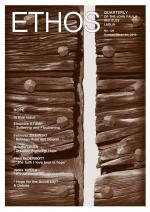 zobacz powiększenie | DOI 10.12887/32-2019-4-128-21 Michael J. James, Catholic Higher Education in the Twenty-First Century: A View from the United States Cena brutto: 7,00 PLN za szt. |
|
The research, scholarly synthesis, and teaching conducted in a Catholic university are crucial to the dialogue the Church conducts with the cultures of our time, which is essential to the future of the Church and of the world. Their fruitful pursuit depends on unconditional commitment to the truth, both on the immediate subject of study and at the deeper levels of human existence in which freedom, justice, and human dignity are grounded. A significant consequence of the worldwide Second Vatican Council for Catholic colleges and universities was a new understanding of the Christian calling of the laity, in light of diminishing numbers in the vowed religious congregations. To the extent that the Catholicity of the colleges had largely been seen as the charge of the sponsoring religious community, there was a widening gap between the profession of faith and available human resources. Further, a move from ownership of colleges and universities by religious congregations to the installation of lay boards of trustees—without requiring any special introduction of lay trustees to the church-related history and commitment intrinsic to the colleges—was at first not appreciated. Consequently, due to these and other factors, Catholic colleges and universities found that they could no longer take for granted the religious character of their institutions. They could no longer assume that the values and goals professed by the institutional mission were spontaneously implemented in practice. In response to these growing concerns, Pope John Paul II promulgated the Apostolic Constitution Ex Corde Ecclesiae. This document identified the common characteristics of all Catholic colleges and universities. In the introduction to Ex Corde Ecclesiae, Pope John Paul II reflects personally on his own experience as a university professor of philosophy. He portrays the Catholic university as a place where the encounter of faith and reason is taken seriously and pursued into the great complexity of contemporary science, philosophy, social sciences, and so forth. He acknowledges that this involves creativity. Hence, there is bound to be some experimentation, some trial and error, some wrestling with the ways in which secular knowledge is incorporated into the way Catholics see everything by the light of faith. Keywords: Catholic higher education, Mission and Identity, Catholic higher education and internationalization, Catholic social teaching, John Paul II, Vatican II, Ex Corde Ecclesiae, Mission-centered strategic planning Contact: Department of Educational Leadership &Higher Education, Lynch School of Education and Human Development, Boston College, Campion Hall, 140 Commonwealth Avenue, Chestnut Hill, MA 02467, USA | |
